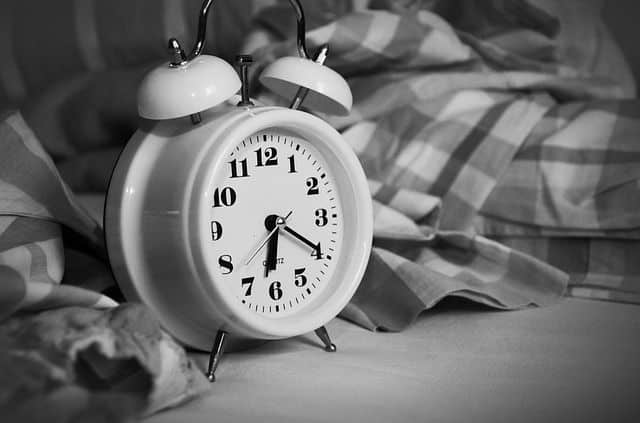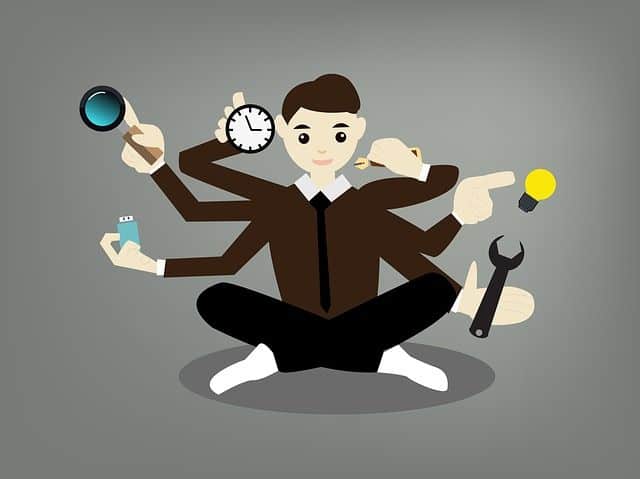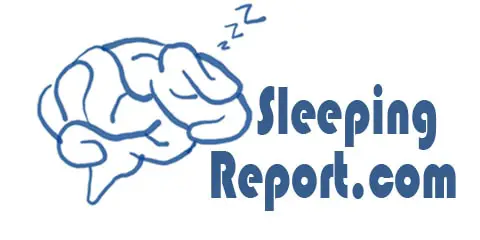When it comes to good health, most people understand the importance of a healthy diet and exercise but overlook getting enough sleep. It’s understandable why so many adults want to sleep less. In the fast-paced, work-heavy world we live in, we don’t have the luxury of time, and cutting down on the hours we sleep gives us some extra hours in the day.
While the general recommendation for adults is 7-8 hours of sleep per night, many of us can only manage six or fewer hours of sleep each night. But how little sleep is too little? Is 3, 4, or 5 hours of sleep enough? No, 3, 4, or 5 hours of sleep is not enough. If you don’t get at least 6 hours of sleep, your health and quality of life will suffer.
It’s essential to have an understanding of how many hours of sleep your body needs to remain healthy. Read on to explore how much sleep you need to be getting each night and, if you can’t manage that, how you can tackle the consequences of sleep deprivation.

How Much Sleep is Enough?
Countless studies and a body of research on sleep have all concluded that it’s healthy for most adults to get 6-8 hours of sleep a night.
During those 8 hours, the body goes through around 5 sleep cycles. Each sleep cycle lasts approximately 90 minutes and consists of both rapid eye movement (REM) and non-rapid eye movement (non-REM) sleep. Both stages are necessary to remain healthy during REM sleep, the brain processes information is gathered through the day, and during non-REM sleep, both the body and brain sink into deep, restorative rest.
According to research, eight hours of sleep allows your body and brain the time they need to recharge, which helps you have happier, healthier waking hours.

Is 3, 4 or 5 Hours of Sleep Enough?
So, what happens if you are only getting 3-5 hours of sleep a night? Is it enough for your body to refresh and recharge?
The short answer is no.
When you sleep for fewer hours, you may not go through the number of sleep cycles your body needs. A sure-fire way to assess whether 3, 4, or 5 hours of sleep is enough for you is to look at whether you’re experiencing physical and mental consequences of sleep deprivation. Some of the physical effects of getting too little sleep are:
This article is owned by Sleeping Report and was first published on November 3, 2019
- Decreased immunity: While you sleep, your immune system releases cytokines, which help prevent inflammation and infections. Getting too little sleep interferes with the production of cytokines, which may lead to you falling sick more often.
- Increased risk of diabetes: Research has found that when you get less sleep, the body produces less insulin, which in turn increases the amount of glucose in your blood. Too much glucose in your body may lead to you developing Type II diabetes.
- Increased risk of being overweight: When you’re getting too little sleep, your hormone levels become imbalanced, and your body starts producing more ghrelin, a hormone that causes hunger. As a result, you’ll eat more and put on more weight.

Getting too little sleep can also severely impact your mood. If you’ve had less sleep one night, you may notice you’re more irritable, short-tempered and anxious. It also makes you more emotional – researchers have found that when you’re sleep-deprived, the amygdala, which moderates emotions in the brain, becomes more active. As a result, you have a shorter trigger and will react more emotionally to any stressful situation.
If bad moods and frequent illnesses sound familiar to you, then perhaps 3-5 hours of sleep isn’t enough for you.
Are You a Short Sleeper?

When looking at how much sleep you need, you may, at some point, wonder how some successful business people get by on so little sleep. For instance, Twitter founder Jack Dorsey sleeps for only 4-6 hours while both Martha Stewart and CEO of Pepsico, Indra Nooyi, sleep only 4 hours a night. What’s their secret?
Recent research has found answers in our genetics – some people are genetically short sleepers. Short sleepers can get less than 6 hours of sleep every night and still function healthily. If you suspect you’re a short sleeper, start keeping a sleep journal to record how much you sleep every night and how you feel both physically and mentally the next day. Then, pay a visit to your general physician who will ask you to take the Morning-Eveningness questionnaire to assess whether your body naturally leads to less sleep. If you are a short sleeper, 3-5 hours of sleep each night may be enough.
However, don’t get too excited! Less than 3% of the population are short sleepers, and most of us do need to be getting more than 5 hours of sleep a night.
Surviving On Less Than 6 Hours Of Sleep

While it is kinder to your body and mind to make sure you’re getting at least six hours of sleep, there are ways that you can survive on less than that – if you absolutely need to. The key is adjusting your sleep phases. There are three types of sleep patterns or phases.
- Monophasic sleep: This is the sleep pattern that most of us have, where we sleep for an extended amount of time (ideally 6-8 hours) in a 24-hour cycle.
- Biphasic sleep: Someone practicing biphasic sleep sleeps for 5-6 hours a night and then has a short 60-90 minute siesta in the afternoon to give them a boost of energy to finish the day. Some countries, like Italy and Spain, even have two hours of ‘siesta’ time factored into their business days!
- Polyphasic sleep: Polyphasic sleepers sleep for 20-30 minutes at several intervals in the day. There are different types of polyphasic sleepers; the Everyman, who sleeps for 3 hours at night and then for three 20 minute naps per day, the Uberman who takes only six 30 minutes naps through the day and the Dymaxion who only sleeps for 2 hours each day in 3-minute naps.
If you’re a polyphasic sleeper, then 3-5 hours of sleep or even less may be enough. Polyphasic sleep advocates argue that because you’re sleeping less, your body immediately goes into deep, restorative sleep as soon as you close your eyes. Sleeping at frequent intervals allows you to get energy periodically throughout the day, increasing your productivity.
However, the jury is still out about whether it’s the best thing you can do for your body. Not enough research has been done into the long term impact of polyphasic sleep. And, becoming a polyphasic sleeper can be complicated; you have to make sure you’re in an environment that allows you to settle down for an undisturbed nap every few hours.
Tips to Help Keep You Awake
Adjusting your sleep patterns into a different phase may seem too extreme. If you’ve not had enough sleep for one or two nights, then look for temporary fixes to make sure you have enough energy to get through the day. These could include:
- Having a hot and cold shower: Warm showers will send you straight back to sleep, but alternating cold and hot water will help you feel more alert and active.
- Drink right: You may find yourself reaching for a cup of coffee to battle sleep deprivation, but remember that it will only give you a temporary respite; in three hours’ time, you’ll be ready to hit the bed again. Instead of coffee, sip on water or fruit juices that will hydrate you and give you a boost.
- Cut down on sugar and carbs: Carbohydrates and sugar will give you a temporary sugar rush that will feel great for a few minutes and then end in sugar and energy crash. This can be twice as bad if you’re running on low sleep.
Even if you can function on little to no sleep for a few days, remember the long term impact that too little sleep can have on your body and mind.
SleepingReport.com copyright article was updated on ..
Final Thoughts
Making getting less sleep a habit will impact both your physical and mental health. For most people, 3,4 or 5 hours of sleep each night isn’t enough; adults need 6 hours of sleep a night at a minimum. By getting enough sleep, you are taking care of your holistic wellbeing.

